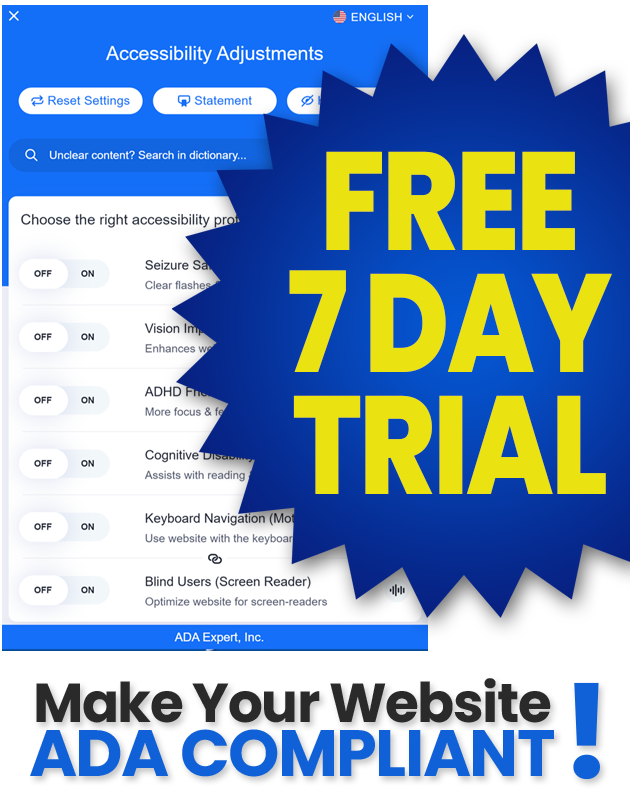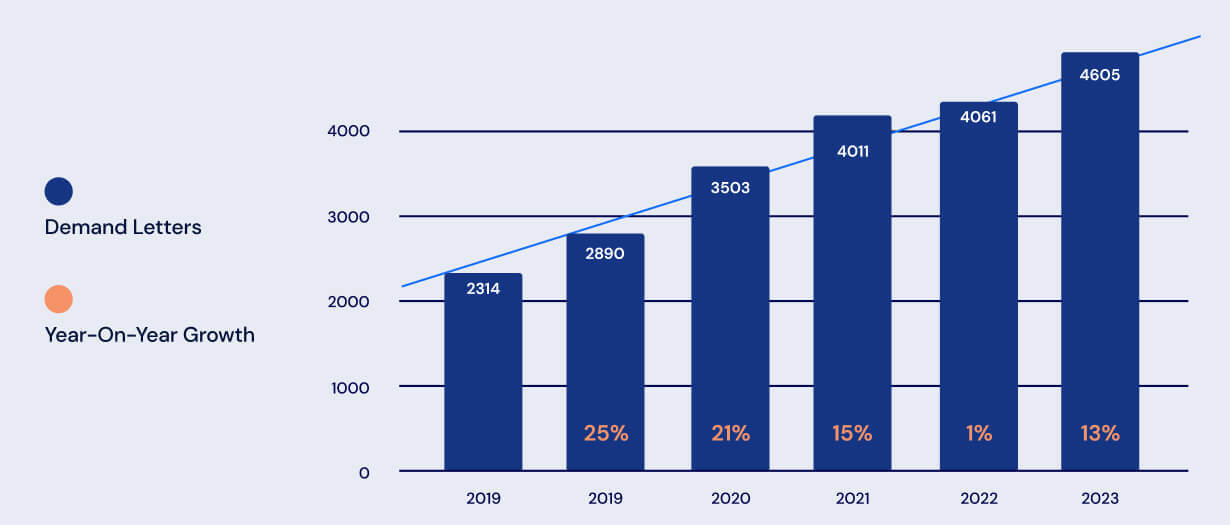Websites with over 100K monthly visits require our Developer Package. Otherwise, price is based on page count only.
COMPLIANCE
AI Accessibility Widget
ADA Section 508AODA, EN 301549
WCAG 2.1 AA
- Website PagesWebsite Pages
- Accessibility statementAccessibility statement
- Certificate of performanceCertificate of performance
- Automatic fixesAutomatic fixes
- Analytics reportAnalytics report
- SupportSupport
Small Business
$10
per month
- Website Pagesup to 1,000 Pages
- Accessibility statement
- Certificate of performance
- Automatic fixes
- Analytics report
- Support24/7 email tech
High Growth
$30
per month
- Website Pagesup to 10,000 Pages
- Accessibility statement
- Certificate of performance
- Automatic fixes
- Analytics report
- Support24/7 email tech
Enterprise
$59
per month
- Website Pagesup to 100,000 Pages
- Accessibility statement
- Certificate of performance
- Automatic fixes
- Analytics report
- Support24/7 email tech
COMPLIANCE
AI Accessibility Widget
ADA Section 508AODA, EN 301549
WCAG 2.1 AA
- Website PagesWebsite Pages
- Accessibility statementAccessibility statement
- Certificate of performanceCertificate of performance
- Automatic fixesAutomatic fixes
- Analytics reportAnalytics report
- SupportSupport
Small Business
$10
per month
- Website Pagesup to 1,000 Pages
- Accessibility statement
- Certificate of performance
- Automatic fixes
- Analytics report
- Support24/7 email tech
High Growth
$30
per month
- Website Pagesup to 10,000 Pages
- Accessibility statement
- Certificate of performance
- Automatic fixes
- Analytics report
- Support24/7 email tech
Enterprise
$59
per month
- Website Pagesup to 100,000 Pages
- Accessibility statement
- Certificate of performance
- Automatic fixes
- Analytics report
- Support24/7 email tech
Fast and Easy Implementation
ADA-Expert’s AI Widget involves a simple installation of JavaScript code on your website. Once implemented, AI Widget scans, analyzes, and fixes accessibility compliance gaps in up to 48 hours.
Ongoing Remediation
With ADA-Expert, you receive ongoing maintenance and remediation for your website. AI Widget scans and monitors your website every 24 hours to ensure any new content you upload is remediated.
Litigation Support Package
Our unique service takes care of everything you need and provides all necessary accessibility documentation for all case scenarios. Instead of handling legal situations on your own, we are the only web accessibility service that provides such a package and gives you the peace of mind you need.



